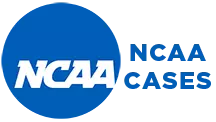
Alabama Holds Reunion for 1958 Team, Bear Bryant's First as Head Coach
9/8/2018 3:12:00 PM | Football
Before the famous first team meeting was held, there was a preceding one that Marlin "Scooter" Dyess will always remember. It was called by the Alabama football players following the disastrous 1957 season, and held in the exact same room that they would eventually have a memorable introduction to their new coach.
Jennings Whitworth, nicknamed "Ears," had gone 4-24-2 over three seasons, capped by a 40-0 drubbing by rival Auburn. It was the Crimson Tide's worst loss since 1951. When his contract subsequently expired after the Iron Bowl the coach didn't even bother asking for an extension. The search for his replacement had been ongoing for a while.
Nevertheless, the players gathered and listed on a board all of the coaches who they believed might have a chance at the job. Then then voted, choosing who they preferred to be hired.
Being an alum, and having had his name mentioned when Whitworth was hired, Paul W. "Bear" Bryant's name was obviously on the list.
"He didn't get any votes," Dyess said. "Not a one."
Let's just say that Bryant's reputation had preceded him even though some had yet to hear about the Junction Boys at Texas A&M (and the Aggies subsequently went 1-9 for the only losing season of his career).
It's one of the many things that Dyess is looking forward to reliving this weekend when the 1958 team holds a special 60-year reunion on campus. Although the university is known for regularly celebrating anniversaries of national and SEC championships, this is a little different because the 1958 Crimson Tide didn't do either.
Its claim to fame was being Bryant's first team as Alabama's head coach. More than 60 people who were associated with it are expected to attend, including one who had been a young assistant and followed him from Texas A&M to Tuscaloosa, Gene Stallings.
"I loved the man, he was good to me," Dyess said about Bryant, who gave him the nickname that he still goes by today. "I can't say enough about him. I think about him every day."
But his lasting impression of Bryant was very different from the first one, when the new coach called all the players together and promptly shut the door at the appointed time.
"I'll never forget it," said Dyess, a halfback who at 5-foot-6 was the smallest player on the roster. "He walks in and he didn't smile. We all knew who he was, but he didn't introduce himself. He didn't break the ice. It was cold. Nobody said a word, it was totally different.
"He just said, and I'm kind of paraphrasing, that he was looking forward to coaching this team and he said 'I never want to hear the past regime mentioned. It was not their fault. The problem with this team is sitting in this room right now.' He said, 'This is the problem, and we're going to straighten it out for those who want to stay and pay the price.'"
Needless to say, the room remained silent. Whitworth had enjoyed a friendly relationship with the players. This was very different.
Bryant's next message was to tell everyone to start getting ready for the spring "because you've never through anything like what we're going to put you through. And then if you decide you don't want to play, and quit, go ahead. The red jersey doesn't mean anything to you anyway if you feel that way."
Plus: "I don't know any of your mothers and daddies. Don't want to know any of them. I'll know who I want to know when I get through spring practice."
"There were 29 scholarship athletes that were two-year letterman," offensive lineman Ken Roberts said. "At the end of that year there were seven or eight left. It was a weeding-out process but there's one thing: Coach Bryant's practices were intense, but the business about him being brutal that was a lie.
"He was not brutal, but he worked your butt off. There's no doubt about that. He wanted to see who wanted to play."
Alabama didn't know it at the time, but it opened the 1958 season against the team that would go on to win the national title, LSU, in Mobile. The Crimson Tide had a 3-0 lead at halftime, but Heisman Trophy winner Billy Cannon notched two touchdowns for the 13-3 victory.
Regardless of the loss, the game was eye-opening for the players.
"Going in, we didn't know that they were that good," Dyess said. "We were trying to survive is what we were doing. We weren't trying to have a great season, we just wanted to get through it."
A week later the Crimson Tide hosted No. 20 Vanderbilt. Alabama didn't win, but it didn't lose either, ending in a 0-0 tie.
The first win was expected, 29-6 over Furman, and the Third Saturday in October resulted in a 14-7 loss at Tennessee. But Alabama came back and won at No. 19 Mississippi State 9-7. For what it lacked in talent it made up for in tenacity, as no opponent scored more than 14 points.
Alabama ended up posting a respectable 5-4-1 record, which was a far cry from where the program had been.
"We had a decent season, but we didn't have the athletes of course to win big games," Dyess said. "Coach Bryant never let on that we couldn't beat anybody. We were always the underdogs, but in '59 we ended up No. 10 in the nation —which nobody remembers.
"We didn't know we weren't any good, but that's what he instilled in the average player. He always said he could coach average players better then he could superstars … but he had a lot of superstars too."
They came later, and in 1961 the Crimson Tide ran the table to win Bryant's national title.
But the foundation was put in place by that 1958 team.




